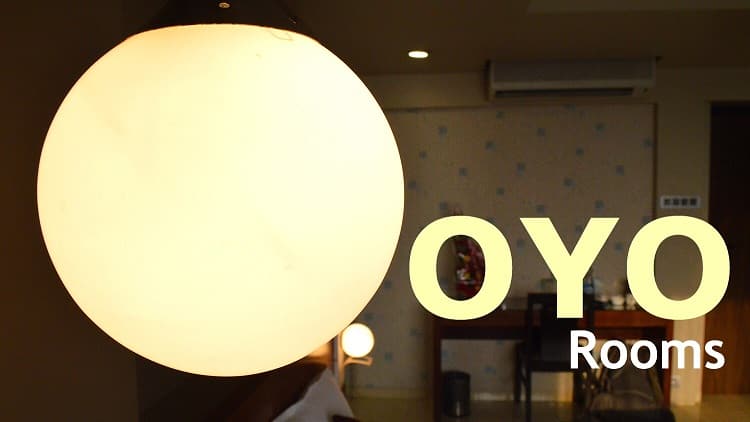Oyo Rooms is currently the largest hospitality company in India. It is also India’s largest aggregator of the branded network of hotels. The business model of Oyo Rooms is quite unique in comparison to its competitors like Yatra, MakeMyTrip, or Goibibo. Oyo Rooms uses the aggregator business model which is the same model used by Uber. While other competitors list the hotel names, Oyo Rooms list the rooms under their own branded network of hotels. One of the biggest names in hospitality section worldwide is AirBnB and their business model focus mainly on discovering partners to provide space for staying. But Oyo Rooms has a better business model that not only focuses on finding partners and co-branding but also on providing a certain standard of services for the users.
Aggregator Business Model – The Difference Maker
The exponential rise of Oyo Rooms as a hospitality company can be solely attributed to its unique business model. While its competitors list hotels and get commissions based on booking, Oyo Rooms partners with different organized and unorganized hotels and split the income. Therefore, its revenue generation is multiple times higher than its competitors on per booking. As a matter of fact, its aggregator business model is so impressive that it managed to attract over $250 million funds from SoftBank which is one of the leading investors in the world.
Understanding The Aggregator Business Model –
With the aggregator business model, what Oyo Rooms does is they partner with different hotels across the country to provide rooms to the customers under their own brand. For hotels to qualify as its partners, their rooms and services have to meet certain guidelines such as the standardization of certain essential services, features of rooms, staff quality, security availability, pricing and other such important. While other business models in hospitality industry solely focus on the standard of hotels and their pricing, Oyo’s business model focus more on user experience which in turn takes care of hotel standardization.
Due to the presence of strict standardizing guidelines, it is very easy for Oyo Rooms to expand their branding with various organized and unorganized hotels across the country exponentially. Furthermore, due to the ensuring standard of rooms, the users ditch other hotel booking platforms and blindly trust on Oyo Rooms. They stopped caring about the hotels and paid more attention to the rooms provided. This, in reality, led to the disruption in the hospitality sector and Oyo Rooms came out as a winner.
The Closer Inspection Of Oyo Rooms Business Model –
On closer inspection, one will find that Oyo Rooms actually has two different business models for different categories of hotels.
For organized hotels that already has all the standard services Oyo Rooms must have, they book an inventory of hotel rooms in all the different standard hotels for a certain time period by paying in advance after some bulk discount. Then it lists those rooms on their website and does smart marketing to provide those luxurious rooms at budget prices. It is basically a hotel room reselling model whereby highly priced hotel rooms are offered at budget prices which leads to losses but draws customers from its competitors and help immensely in marketing and creating a better brand value.
For unorganized hotels, homes and commercial spaces that do not meet the standards of Oyo Rooms automatically, they give it a makeover and become a partner to provide all the necessary services. Those hotels become exclusive for Oyo Rooms and for every booking, they are going to make money as much as the owners who owned these hotels as a side business and never paid full attention to them until Oyo Rooms started taking initiatives.
Is It A Profitable Business Model?
Even after bulk discount, Oyo Rooms makes losses for the rooms they buy in already organized hotels. This loss is actually an investment in their marketing segment that in turn helps them to attract customers to their exclusive Oyo Rooms in the previously unorganized hotels. There is number of exclusive Oyo rooms than Oyo rooms in already organized hotels. Oyo does not display the name of the hotels and hence, customers cannot pick the already organized hotels all the time. They are tricked to think that all rooms are same in all hotels which are the case most of the time but the organized hotels have more facilities and better location than the unorganized ones.
The occupancy rate in all these rooms is 80% as claimed by Oyo Rooms. Therefore, by simple logic, they have a net profit due to more number of exclusive rooms than rented rooms. The catch in this business model lies in the occupancy rate. The higher the occupancy rate, the higher will be the profit. The occupancy rate is directly dependent on marketing which is why they are ready to take losses by booking high-quality luxurious hotels and reselling them at a lower rate to appease customers and making them believe that all Oyo Rooms are same irrespective of hotels they may be in.
This is a risky business model and it worked for cab aggregator like Uber. But there are many companies in hospitality space like StayZilla that could not survive the losses and had to shut shop. Once the breakeven point is reached and the booking rate grows constantly, this is a money-making business model that has led Oyo Rooms to be the leader in the hospitality industry.




